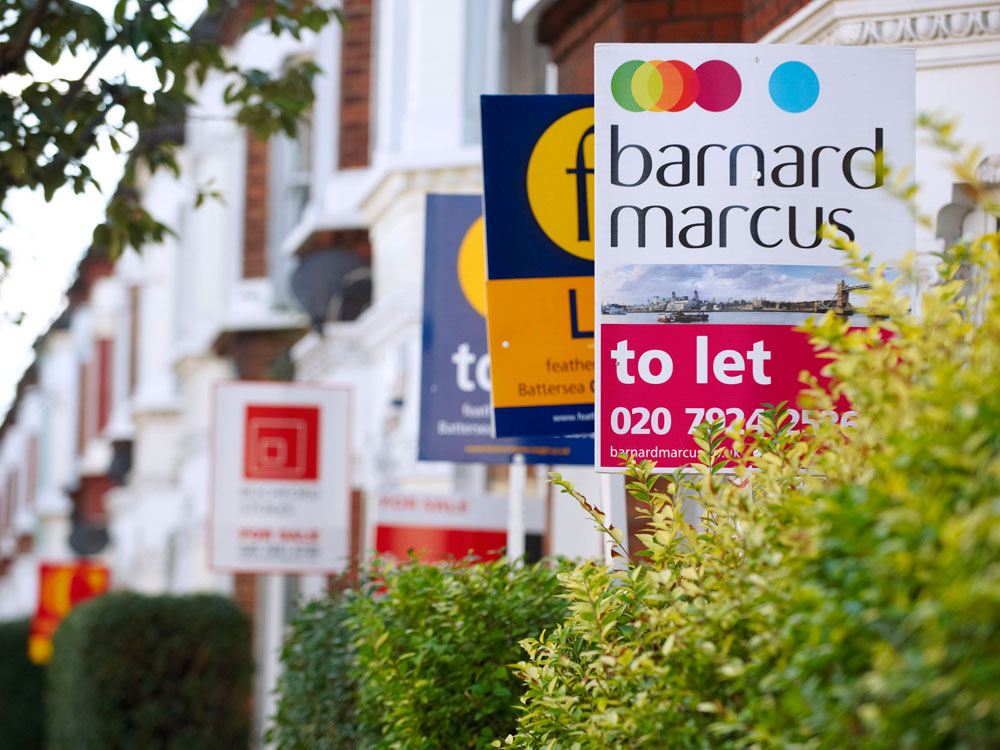12 Things You Need To Know Before Buying Your Own Property
Joining the property market is exciting - but it’s also expensive and supremely stressful. This is why it pays to be prepared before you enter the ring. We've put together a swat team of experts to help you get property fit.

Joining the property market is exciting - but it’s also expensive and supremely stressful. This is why it pays to be prepared before you enter the ring. We've put together a swat team of experts to help you get property fit.
Our expert panel:
The television expert: TV presenter and property developer Sarah Beeny owns online estate agent Tepilo
The mortgage guru: Barney McCarthy is a spokesperson for Which? Mortgage Advisers
The uber surveyor: Andrew Bulmer is the UK Residential Director of RICS (Royal Institution of Chartered Surveyors) The mega estate agent: Lawrence Hall is head of communications at Zoopla
The super solicitor: Sally Firby is a partner in the residential property team at Cripps Harries Hall
Here we go:
Marie Claire Newsletter
Celebrity news, beauty, fashion advice, and fascinating features, delivered straight to your inbox!
1. Do the math (Look, we all want to live in South Kensington, but we can't, ok?)
'Speak to an Independent Financial Adviser (IFA) or your bank to get expert advice on how much you can afford, and what type of mortgage will best suit your situation. Don’t forget to factor in the additional charges that will crop up throughout the property buying process – as well as stamp duty and the deposit, you need to consider solicitor’s fees, lender valuation and survey fee, removal costs, home insurance and even the all-important furnishing costs at the end.' Lawrence Hall.
'Affordability calculators such as the one found here are a good place to start.' Barney McCarthy.
2. Clean up your act (Yes, strangely enough banks want to know that you are credit-worth before lending you hundreds of thousands of pounds...)
'Before you speak to an adviser or lender, it is important to access your personal credit file and address any issues contained within. If there are any late or missed payments, an accompanying explanatory note can help lessen the impact it might have. It is also important for individuals to have an up-to-date address history and, most importantly, be registered on the electoral roll. Pre-empt potential problems. This is especially important in situations where there may be anything slightly out of the ordinary such as: if you are still in a probationary period at work, can you get an employer’s reference; if you are self-employed, do you have two or three years of audited accounts; if you are on maternity leave, do you have a letter from your employer confirming return date and salary? It is better to discuss your exact circumstances with an adviser up front rather than waiting to be prompted by a lender to provide this information.' Barney McCarthy.
3. Do your research (Time to make like a big swot and start poring over the Ordnance Survey maps of the local area... go on, you know you want to)
'Make sure you view the property more than once and at different times of the day. It’s easy in a sellers’ market to jump the gun and put an offer in as soon as you’ve seen a property.' Andrew Bulmer.
'Decide your priorities in terms of location, and what is going to be most important to you in a new neighbourhood – good local schools, commuting distance from work, public transport links, crime rates, close to family and friends, proximity to amenities, restaurants and bars.' Lawrence Hall.
4. Decide what you want (Yes, there is a fun bit... and this is it)
'You can’t start house hunting until you know what you’re looking for. Time for the fun part, put pen to paper and sketch out your dream property criteria – number of bedrooms and bathrooms, private garden, off-street parking, detached or semi-detached. Be realistic with your wish list though, and identify what is an essential property ‘must have’ and what you would be willing to compromise on. A crystal clear brief will help your agent sift through the bunch, and save a lot of time for all involved.' Lawrence Hall.
5. Be flexible (Who says you need roses round the door when you can have police tape in the front garden? OK, maybe that's going too far, but you get the picture)
'Once you’ve worked out how much you can afford really have a good browse round on the internet at the areas that you’re prepared to live in and get a map out and just move the areas that you’re thinking about living in out and just see if the prices change significantly. Sometimes it changes massively and you’ll be so surprised that actually all of a sudden you can afford something that you didn’t think you could - actually you might find that it’s really worth being another half a mile down the road for the pleasure of having maybe having a park nearby or perhaps an extra bedroom or maybe a bigger garden. People get their heart very set on a very particular thing and actually if you stay a bit flexible you find you can really bag a bargain. Don’t be too stuck on the particular style of house because you may find that if you don’t stay quite so set in your ways you can get a style of house that perhaps isn’t quite as fashionable but actually you can do some fantastic things if you if you think a little bit outside the box in terms of design.' Sarah Beeny.
6. Get to know your agents (That's right. Actually stalk them. Well, don't then. But do be keen.)
'Register with a local estate agent, and make sure they know what you're looking for. Make sure you take the time to go into their offices to meet them face-to-face to discuss your requirements in detail, they will be much more likely to think of you when an appropriate property comes up than if you’re merely a name on a long list of house-hunters." Lawrence Hall.
7. Get a surveyor (Just do it, for the love of God. This is no time to be a tightwad.) 'A lot of people take the plunge without getting a chartered surveyor to inspect the actual condition of the property you’re looking to buy. Be prepared and get an expert to check for any nasty surprises. It could save you thousands in the long run.' Andrew Bulmer.
8. Negotiate (Yes that's it. Haggle!)
'The price of a property in the agent’s window is not set in stone and vendors can often be willing to negotiate, especially if your survey has revealed defects. If you don’t ask, you’ll never know.' Andrew Bulmer.
9. Get a good solicitor (So your dad knows someone who did their own conveyancing. Bully for them.)
'Have a decent solicitor on board – someone who will be pro-active and really work hard for you. This will not necessarily be the cheapest solicitor around but generally speaking you get what you pay for.' Sally Firby.
'If this is your first step onto the property ladder line-up a property solicitor (also known as a conveyancer) to manage the home-buying process. A good one they will be worth their weight in gold when it comes to drawing up and explaining contracts, dealing with the Land Registry and managing Stamp Duty charges. A recommendation from family or friends is a good place to start.' Lawrence Hall.
10. Avoid the most common mistake that buyers make (Because did you know, some people even take the lightbulbs with them)
'Remember the main thing that you will fall out about with the seller is fittings and contents. If there is a garden statue or light that you simply have to have make sure you make this clear in your offer.' Sally Firby.
11. Don't leave mortgages and insurance to the last minute (Sometimes the obvious needs saying) 'You need to have insurance in place at the point of exchange. Don’t leave it until the last minute to organise. The same point applies if you need a mortgage. Do not underestimate how long it takes to sort this out and try and have an offer in principle in place as soon as you can.' Sally Firby.
12. Try these ways to stay sane (Because this process is up there with death and divorce, and you know that girlfriend)
'Buying a house can take longer than everyone imagines particularly if you are in a chain. Try not to organise a holiday, have a baby or change your job before completion – its very stressful for all concerned.' Sally Firby.
'Don’t count the chickens before they hatch. I know so many people who make plans when they’re buying. The words ‘sell’ and ‘buy’ is bandied around in a massively unrealistic way. You haven’t bought a house unless you’ve exchanged I would strongly recommend that you say you’ve put an offer on the house mainly because if you don’t then psychologically you’re completely in the wrong headspace. Saying it this way keeps your options open and keeps you flexible for what might lie ahead. Remain realistic. Stay calm. It’s the only way of staying sane.' Sarah Beeny.

Now here's the really serious stuff (What??? This is important. You'll thank us later. This stuff is so sensible we're not even going to bother making any jokes about it at all. Just read it.):
How to... Find a solicitor: ¥ Look for a solicitor with experience in conveyancing who's licensed here. ¥ If buying with a partner, friend or member of your family get a joint tenant or co-habitation agreement drawn up. ¥ DIY-conveyancing is a possibility for the savvy, but be careful or you could become embroiled in a boundary dispute or discover the seller isn't the actual owner of the property.
Get a survey: ¥ A lender will want to carry out a valuation (a simpler version of a full survey) to help decide how much money you will be lent. ¥ Hire a qualified surveyor from the Royal Institution of Chartered Surveyors (RICS). ¥ Things to look out for in a survey include: is there a damp-proof course, any major cracks, slipped roof tiles, woodworm, or bad electrical wiring?
What happens during... The conveyancing process: ¥ Your solicitor contacts the seller's solicitor. ¥ Your solicitor gets and negotiates the draft contract. ¥ Your solicitor makes pre-contract enquiries. ¥ Your solicitor sends you a property information form or draft contract for you to check. ¥ Your solicitor applies to the council for local searches, checks the title and contract. ¥ The contract's negotiated and agreed, and a completion date is set. ¥ You get a formal mortgage offer and a mortgage deed to sign. ¥ Contracts are exchanged. ¥ Your solicitor draws up a transfer document and sends it to the vendor's solicitor. ¥ Your solicitor finalizes signing of mortgage documents and carries out any final searches and enquiries.
Completion: ¥ On the day of completion you receive the keys. ¥ The seller's obliged to move out. ¥ You pay the seller the balance of the price of the house (minus the deposit). ¥ You receive title deeds and the transfer document. ¥ You pay any extra costs: stamp duty, land registry and solicitor's fees. ¥ Your solicitor registers transfer of ownership at the Land Registry and sends you a statement of completion.
Hakuna matata, friend. The property is yours.
(Information for timeline supplied by Zoopla)
The leading destination for fashion, beauty, shopping and finger-on-the-pulse views on the latest issues. Marie Claire's travel content helps you delight in discovering new destinations around the globe, offering a unique – and sometimes unchartered – travel experience. From new hotel openings to the destinations tipped to take over our travel calendars, this iconic name has it covered.
-
 How the slogan t-shirt became this season's must-have - and why it's more than just another trend
How the slogan t-shirt became this season's must-have - and why it's more than just another trendNot just another Nineties throwback
By Clementina Jackson
-
 How are Trump’s tariffs affecting the fashion industry?
How are Trump’s tariffs affecting the fashion industry?The fluctuating situation in the US is having very real consequences
By Rebecca Jane Hill
-
 Here's every character returning for You season 5 - and what it might mean for Joe Goldberg's ending
Here's every character returning for You season 5 - and what it might mean for Joe Goldberg's endingBy Iris Goldsztajn